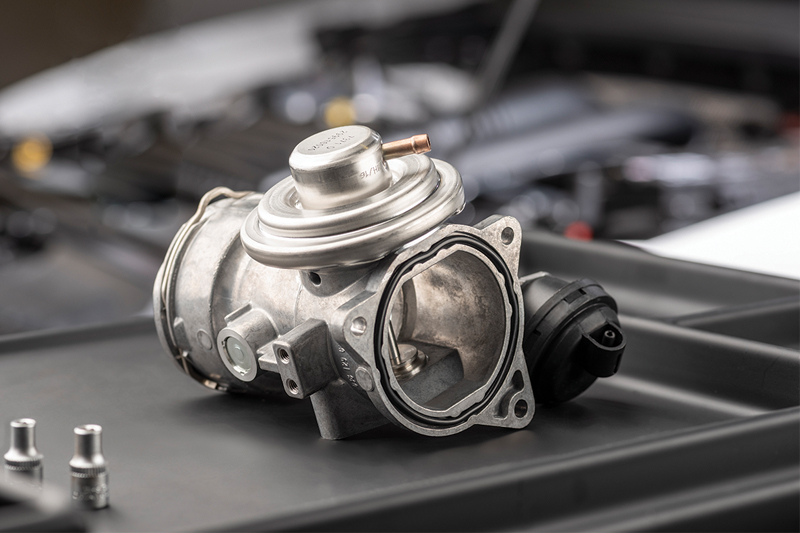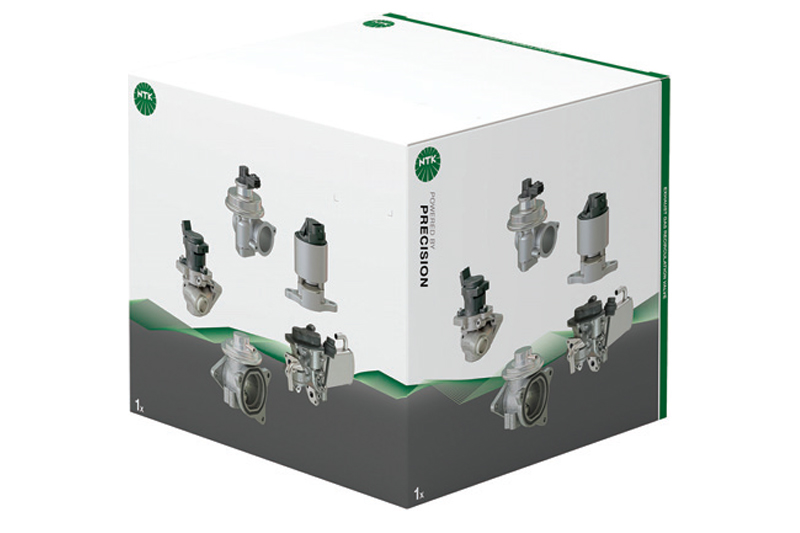
Ron Merralls, technical services manager at Niterra, gives his advice on dealing with issues surrounding EGR valves, which are crucial for reducing NOx emissions.
Carrying out a thorough health check on a customer’s car when it enters the workshop can create a number of new business opportunities for proactive garages. Not only does it give them the chance to find and then fix a problem, but the resulting success also enables them to educate customers on the necessity of agreeing to a health check every time their vehicle enters the workshop – resulting in healthy running cars and healthy profits.
One area where this is particularly important is when dealing with a car’s exhaust gas recirculation system whose principal role is to reduce the amount of harmful nitrogen oxides (NOx) that are produced during the combustion process.
Controlling emissions
NOx is created when high combustion temperatures enable the nitrogen and oxygen present in the air-fuel mixture to combine. EGR valves come in three different types – ‘pneumatic’, ‘electric’ and ‘electric with cooler’ – and operate by taking some of the exhaust gases from the exhaust manifold and then reintroducing these gases into the intake manifold, mixing them with fresh air.
Originally developed at the beginning of the 1970s, EGR valves first started to be used in Europe in the 1990s in order to meet the ‘Euro 1’ emission standards. Today, 100 per cent of diesel cars are equipped with EGR valves and 30-50 per cent of petrol cars, making EGR valve knowhow an invaluable revenue source. When an EGR system issue is encountered, ensure that the root cause of the problem is found on the vehicle before replacing the valve. It is necessary to check that the vehicle is running the latest software as this can cause EGRrelated faults to arise with an EGR valve.

Note that a fault code is only a guide and that the problem can often frustratingly lie elsewhere. It relates to the system affected and cannot directly identify a specific faulty component, but rather the area to begin investigation; so, the cause could be with, for instance an exhaust temperature sensor, MAF sensor or pressure sensor that can affect the overall EGR system operation.
An EGR valve found to be blocked, or coked, means that any associated pipework may also be blocked, so should be checked, and cleaned. If you do find severe contamination, then check the entire EGR system, including throttle body. If a separate cooler is in the circuit, it could also be clogged.
Replacing an EGR valve
When replacing an EGR valve, some may not appear to initially function effectively – engine performance may not immediately improve, smoke may be emitted from the exhaust, and EGR related fault codes may be produced. As with many EGR valves, some vehicle models are required to undergo a ‘learning cycle’.
The vehicle must be driven for the vehicle engine management system ECU to recognise that the valve has been replaced (as it has learned to compensate for the faulty valve’s inefficiency and needs to adapt to the improved working parameters of the new EGR valve). Electronic intervention is sometimes possible to ‘Adapt the EGR’ to the vehicle via diagnostic test equipment.
Many new models will even be equipped with two EGR types (low pressure and high pressure), which means that the replacement part market for these types of valves is likely to grow, corresponding to the level of EGR fitment in the vehicle parc. Using a vehicle health check consistently in your garage can build trust and transparency with your customer, increase your chances of first-time-fix, and optimise your high quality EGR service and repairs for this growing demand.









